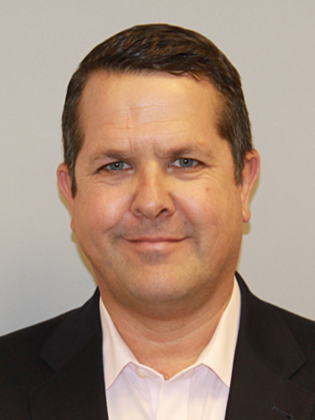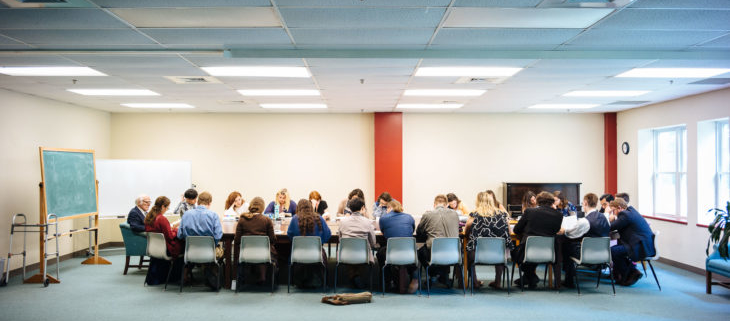Successful Businessman Says Faithful Catholic College ‘Changed My Life’

All too often, students go off to college and lose their faith on campus — but the opposite is true in the case of Mike McGrath, who is forever grateful for the influence of a faithful Catholic college on his life.
After spending a semester at a state university in New York, Mike McGrath was preparing to join the Army. An ear infection delayed his plans — during which time he went on a retreat, met a family associated with Magdalen College of the Liberal Arts in Warner, N.H., and ended up enrolling in the College.
McGrath immersed himself in the Great Books curriculum provided by Magdalen College, which is recommended in The Newman Guide, and was “blown away” by the education. He remembers being introduced to Euclidean geometry for the first time, and all the subject areas that are “parallel paths to open your mind to the truth of things.”
“My whole perspective on life, on what was really true completely opened up,” he shares, noting how the students went to Mass, classes, meals, activities, and study together.
Growing up, McGrath attended mostly public schools and was raised in a nominally Catholic family. He entered Magdalen as an “un-catechized” young adult, but that quickly changed. At Magdalen, he was immersed deeply in the faith, and exposed to beautiful and reverent liturgy.
“When you go to confession regularly, when you go to Mass daily, when you’re praying the rosary, your life is going to get great,” he explains, noting the infusion of grace from the sacraments. “It’s night and day between who I was as a person before and after attending Magdalen College.”
“Magdalen College has a rich history of liturgy and music,” explains McGrath. Even though he studied vocal performance at the state university, he said that he never delved deep into the music in the way that he did at Magdalen College. At the state university, “we never asked the question, ‘what is music?’” and he was pleasantly surprised to be introduced to an “incredible repository of music” at Magdalen.
“My life is so rich now because of my Catholic faith,” McGrath continues. “Magdalen College played a significant role— it changed my life.”
The College altered McGrath’s life in nearly every way, including propelling him into his successful career of the past 20-plus years in the software sales industry. Through the College’s Socratic style classes, McGrath learned “how to listen,” which is essential to becoming a business leader.
“You listen to the master thinkers, and then you discuss the truth of that work whether it’s Aquinas, Aristotle or Nietzsche,” says McGrath about the courses at Magdalen. “When you stop talking and start listening, you learn so much.”
He also gained hands-on leadership experience. “Because it was a small campus and a small community, there were a lot of opportunities for leadership.”
In McGrath’s experience and as countless studies now show, employers today are desperately in need of liberal art graduates who are “well-rounded.” The ideal candidates are “versatile” and don’t just know a particular subject area, but can “think critically, learn how to work within and lead a team, are strong writers, delegate tasks, listen, and grow organically in their career.”
Today, McGrath serves on the board at the Magdalen, and has two children who attend the College. He is excited about the changes Magdalen has made in recent years, the direction it’s headed, and its emphasis on “forming the whole human person.”
“Magdalen really helped me grow as a person,” McGrath says. “The students there today are afforded similar opportunities to lead, to grow in community, to grow in their faith, to grow as a human person.”
“The College will prepare students with the foundation they need to remain faithful and serve the Church and world in whatever capacity they’re called to.”





 Photo by David Mark via Pixabay CC0
Photo by David Mark via Pixabay CC0
